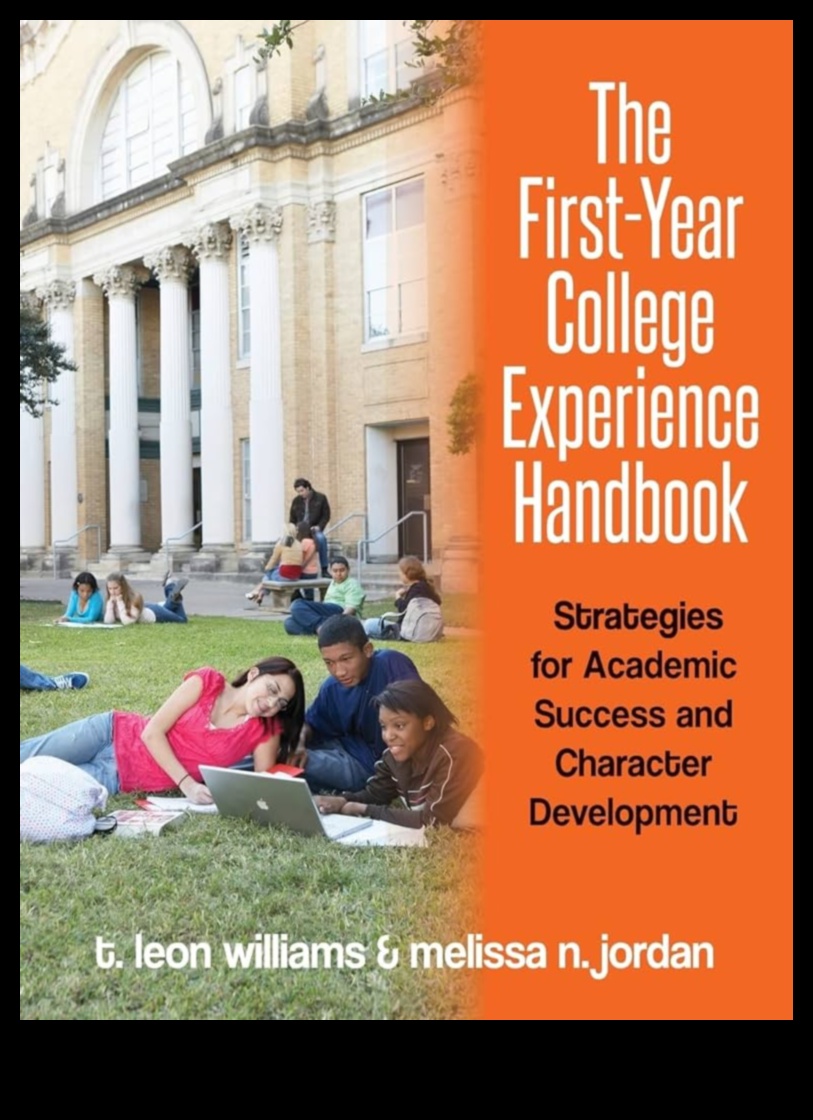
Beyond Books: University Lifestyle and Learning Experiences
This article provides an overview of university life and learning experiences. It covers topics such as student life, campus life, academics, extracurricular activities, and more.

I. Introduction
University is a time of great change and growth. It is a time to learn new things, meet new people, and experience new challenges. It is also a time to have fun and make memories that will last a lifetime.
This article provides an overview of university life and learning experiences. It covers topics such as student life, campus life, academics, extracurricular activities, and more. It is intended to help prospective students and current students make the most of their time at university.
II. Benefits of University Life
There are many benefits to attending university. These include:
- Academic rigor
- Diverse learning environment
- Opportunities for research
- Extracurricular activities
- Networking opportunities
- Career preparation
University is a time to learn new things and challenge yourself academically. You will be exposed to a diverse range of ideas and perspectives, and you will have the opportunity to work with world-class scholars.
University is also a time to meet new people and make friends. You will be surrounded by people from all over the world, and you will have the opportunity to learn about different cultures and perspectives.
In addition to academics, university offers a variety of extracurricular activities. You can get involved in student government, clubs, and organizations. These activities are a great way to meet new people, develop your leadership skills, and get involved on campus.
University is also a great time to network. You will meet professors, staff, and other students who can help you with your career.
Finally, university is a time to prepare for your career. You will learn the skills and knowledge you need to succeed in your chosen field.

III. Challenges of University Life
There are also some challenges to attending university. These include:
- Financial burden
- Academic pressure
- Social isolation
- Homesickness
- Stress
The cost of attending university can be a significant burden. There are many ways to reduce the cost of college, such as scholarships, grants, and loans.
Academic pressure can be high at university. You will be expected to learn new material quickly and apply it to your coursework. It is important to develop good study habits and manage your time effectively.
Social isolation can be a challenge for some students. You may find it difficult to make friends and adjust to your new environment. It is important to reach out to other students and get involved on campus.
Homesickness is a common feeling for students who are away from home for the first time. It is important to remember that you are not alone and that homesickness will eventually pass.
Stress is a normal part of university life. There are many things that can cause stress, such as academics, finances, and relationships. It is important to learn how to manage stress and cope with difficult situations.

IV. How to Manage Your Time
One of the most important things you can do to succeed in university is to manage your time effectively. Here are a few tips:
- Create a schedule and stick to it.
- Set priorities and focus on the most important tasks.
- Break down large tasks into smaller, more manageable ones.
- Take breaks and reward yourself for your hard work.
By following these tips, you can learn to manage your time effectively and reduce stress.

V. How to Make Friends
Making friends is an important part of university life. Here are a few tips for
| Feature | Description |
|---|---|
| University Lifestyle | The social, academic, and extracurricular aspects of university life |
| Student Experience | The personal and professional development that students experience during their time at university |
| Learning Outcomes | The knowledge, skills, and abilities that students acquire during their time at university |
| College Life | The social, academic, and extracurricular aspects of college life |
| Campus Culture | The unique social and intellectual environment of a college or university campus |
II. Benefits of University Life
University life offers a number of benefits for students, including:
- A challenging and stimulating academic environment
- The opportunity to learn from and interact with world-class scholars
- A diverse and vibrant student body
- A wide range of extracurricular activities and opportunities
- The chance to live independently and develop new skills
These benefits can help students to grow intellectually, socially, and emotionally. They can also prepare students for success in their careers and lives after college.
III. Challenges of University Life
University life can be challenging for a number of reasons. Some of the common challenges include:
* Adjusting to a new environment and living away from home for the first time.
* Managing your time and workload.
* Dealing with academic stress.
* Making new friends and building relationships.
* Navigating the social scene.
* Dealing with financial challenges.
* Coping with homesickness.
* Dealing with mental health issues.
These challenges can be difficult to overcome, but there are a number of resources available to help you. Your university’s counseling center, student affairs office, and academic support services can all provide you with support and guidance. You can also find support from your friends, family, and other students.
It is important to remember that you are not alone in facing these challenges. Many other students are going through the same thing. By reaching out for help and support, you can get through this difficult time.
Here are some tips for dealing with the challenges of university life:
Set realistic expectations for yourself. Don’t try to do everything all at once. Pace yourself and focus on one thing at a time.
Develop good time management skills. Learn how to prioritize your tasks and manage your time effectively.
Learn to ask for help when you need it. Don’t be afraid to ask your professors, TAs, or classmates for help when you’re struggling.
Take care of your physical and mental health. Make sure you’re getting enough sleep, eating healthy foods, and exercising regularly. Also, take time for relaxation and stress relief.
Make time for social activities. It’s important to stay connected with friends and family, and to get involved in extracurricular activities.
Seek professional help if you need it. If you’re struggling with mental health issues, don’t hesitate to seek professional help. There are a number of resources available to help you cope with these challenges.
IV. How to Manage Your Time
Managing your time is one of the most important skills you can learn in college. With so many demands on your time, it can be difficult to know how to prioritize your tasks and stay on top of your work. Here are a few tips for managing your time effectively:
Create a schedule. The first step to managing your time is to create a schedule. This will help you to see where your time is going and make sure that you are allocating enough time for your studies, extracurricular activities, and personal life.
Set priorities. Once you have created a schedule, you need to set priorities. What are the most important tasks that you need to complete each day or week? Make sure that you focus on these tasks first and then move on to the less important ones.
Break down large tasks into smaller ones. Sometimes, it can be daunting to look at a large task and think about how you are going to complete it. To make it easier, break the task down into smaller, more manageable steps. This will make it seem less overwhelming and more achievable.
Take breaks. It is important to take breaks throughout the day, especially if you are feeling overwhelmed. Getting up and moving around, taking a short walk, or getting some fresh air can help you to clear your head and come back to your work refreshed.
Delegate tasks. If you have too much on your plate, don’t be afraid to delegate tasks to others. This could include asking a friend or family member to help you with a project, or hiring a tutor to help you with your studies.
Ask for help. If you are struggling to manage your time, don’t be afraid to ask for help. Your professors, TAs, and academic advisors are there to help you succeed.
V. How to Make Friends
Making friends in college can be challenging, but it is important to make an effort to get involved in activities and meet new people. Here are a few tips for making friends in college:
- Get involved in extracurricular activities. This is a great way to meet people who share your interests.
- Join a club or organization. This is another great way to meet people and get involved on campus.
- Talk to your classmates. Even if you don’t have anything in common with your classmates, it is worth getting to know them. You never know who you might become friends with.
- Be yourself. The best way to make friends is to be yourself. People will be more likely to want to be friends with you if they know the real you.
- Be open to trying new things. One of the best ways to meet new people is to try new things. This could mean joining a new club, taking a class, or volunteering for a cause.
Making friends in college can be challenging, but it is definitely worth it. Friends can make your college experience more enjoyable and help you succeed academically.
VI. How to Stay Healthy
Maintaining a healthy lifestyle is important for students of all ages. Here are a few tips for staying healthy while in college:
- Eat a healthy diet. This includes plenty of fruits, vegetables, and whole grains.
- Get regular exercise. Aim for at least 30 minutes of moderate-intensity exercise most days of the week.
- Get enough sleep. Most adults need around 7-8 hours of sleep per night.
- Manage stress. Stress can take a toll on your physical and mental health. Find healthy ways to manage stress, such as exercise, yoga, or meditation.
By following these tips, you can help to stay healthy and well-rounded during your time in college.
VII. How to Get involved on Campus
Getting involved on campus is a great way to meet new people, make friends, and get involved in activities that you’re interested in. There are many different ways to get involved on campus, so you’re sure to find something that interests you. Here are a few tips for getting involved on campus:
- Do your research. Before you start getting involved, take some time to research the different clubs, organizations, and activities that are offered on campus. This will help you narrow down your options and find activities that you’re interested in.
- Talk to your advisor. Your advisor can be a great resource for finding out about different ways to get involved on campus. They can also help you connect with the right people and get started on the right path.
- Attend events. One of the best ways to get involved on campus is to attend events. This is a great way to meet new people, learn about different activities, and get involved in something that you’re interested in.
- Volunteer. Volunteering is a great way to give back to your community and get involved on campus. There are many different volunteer opportunities available, so you’re sure to find something that interests you.
- Join a club or organization. Joining a club or organization is a great way to meet new people, make friends, and get involved in activities that you’re interested in. There are clubs and organizations for just about everything, so you’re sure to find something that fits your interests.
Getting involved on campus is a great way to make the most of your college experience. It’s a great way to meet new people, make friends, and get involved in activities that you’re interested in. So don’t be afraid to get involved!
How to Afford College
College is a major investment, and it’s important to make sure that you can afford it before you start. Here are a few tips for how to afford college:
- Start saving early. The sooner you start saving for college, the more time your money will have to grow.
- Apply for scholarships and financial aid. There are many scholarships available, so be sure to do your research and apply for as many as you qualify for.
- Work part-time. If you can, work part-time while you’re in school to help cover your expenses.
- Consider taking out student loans. Student loans can be a helpful way to pay for college, but be sure to only borrow what you need and to repay the loans on time.
By following these tips, you can help to make college more affordable.
How to Deal with Stress
Stress is a normal part of life, but it can become a problem when it is too much or when it is not managed well. There are many things that can cause stress, such as school, work, relationships, and financial problems. Stress can have a negative impact on your physical and mental health, so it is important to find ways to manage it.
Here are some tips for dealing with stress:
- Identify your stressors.
- Develop healthy coping mechanisms.
- Take care of yourself physically and mentally.
- Seek professional help if needed.
If you are feeling overwhelmed by stress, it is important to talk to someone who can help you. A therapist can provide you with tools and strategies for managing stress, and they can also help you to identify the root of your stress and develop ways to cope with it.
X. FAQ
Q1: What is the best way to manage my time?
A1: There are a few different ways to manage your time effectively. One way is to create a daily or weekly schedule. This will help you to see where your time is going and make sure that you are allocating enough time for each of your activities. Another way to manage your time is to break down large tasks into smaller, more manageable ones. This will make them seem less daunting and more achievable. Finally, it is important to be realistic about how much time you can actually accomplish in a day. Don’t try to do too much, or you will end up feeling overwhelmed and stressed.
Q2: How can I make friends in college?
A2: Making friends in college can be challenging, but it is definitely possible. Here are a few tips:
* Get involved in extracurricular activities. This is a great way to meet people who share your interests.
* Attend social events on campus. There are usually a variety of events happening on campus each week, so there is something for everyone.
* Talk to your classmates. Even if you don’t become best friends with your classmates, it is still a good idea to get to know them. You might find that you have a lot in common with someone you never expected.
* Be yourself. The best way to make friends is to be yourself. People will be more likely to want to be friends with you if they know the real you.
Q3: How can I stay healthy in college?
A3: Staying healthy in college is important for both your physical and mental health. Here are a few tips:
* Eat a healthy diet. This includes eating plenty of fruits, vegetables, and whole grains.
* Get regular exercise. Aim for at least 30 minutes of moderate-intensity exercise most days of the week.
* Get enough sleep. Most adults need around 7-8 hours of sleep per night.
* Manage stress. Stress can take a toll on your physical and mental health. Find healthy ways to manage stress, such as exercise, yoga, or meditation.